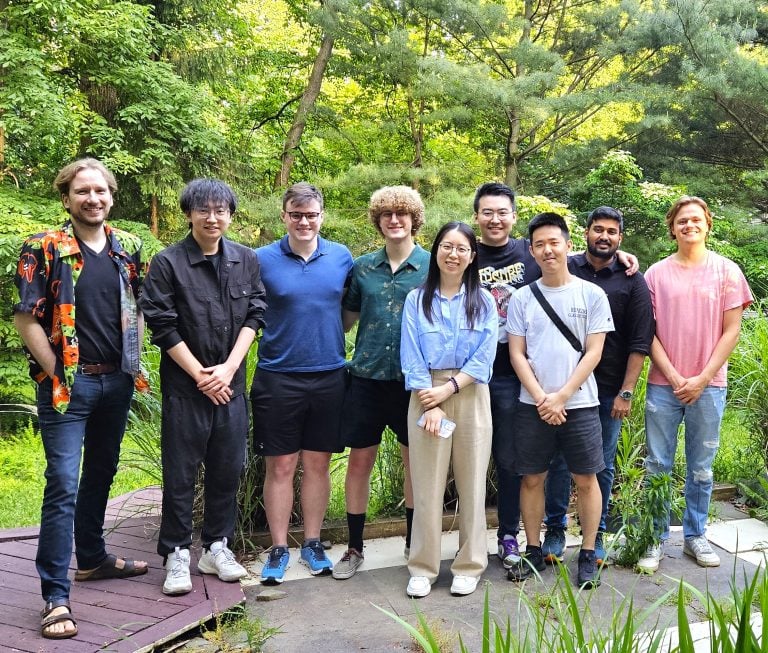BUKOWSKI RESEARCH GROUP
We discover new catalysts for a sustainable future

Developing new technologies that responsibly and sustainably utilize conventional and emergent feedstocks is critical to meet the energy needs of the future. Our group uses computer modeling to identify new materials and understand how they can be engineered to address these pressing issues. Nanoporous solids are one type of material that we are interested in because of their enormous potential as efficient catalysts. The intrinsic complexity and number of design parameters in these materials make it necessary to develop rules that guide practical implementation.
RECENT NEWS
May 2024: Dr. Bukowski receives an Amazon Research Award. [link to award site]
November 2023: Dr. Bukowski receives a Doctoral New Investigator grant from ACS PRF.
November 2023: Congratulations to Joshua Zhou for receiving a 2nd place trophy in Computing and Process Control II at the student poster session in AIChE Orlando!
RECENT PUBLICATIONS
[29] M. Zheng and B.C. Bukowski*, “Probing the role of acid site distribution on water structure in aluminosilicate zeolites: insights from molecular dynamics”, J. Phys. Chem. C, 2024. [link].
[28] R. Wang†, B.C. Bukowski†,*, J. Duan, K. Zhang, R.Q. Snurr*, J. Hupp*, “Geometry and chemistry: Influence of pore functionalization on molecular transport and diffusion in solvent-filled zirconium metal-organic frameworks”, ACS Applied Materials and Interfaces 2023, [link] [preprint link] .
[27] R.A. Jarrin, K. Bennett, V.S. Thoi, B.C. Bukowski*, “Cations mediate lithium polysulfide adsorption in metal-organic frameworks for lithium-sulfur batteries”, J. Phys. Chem. C, 2023, [link] [preprint link].
[26] Y. Xu, M. Zheng, C.B. Musgrave III, L. Zhang, W.A. Goddard III, B.C. Bukowski, Y. Liu*, “Assessing the kinetics of quinone-CO2 adduct formation for electrochemically mediated carbon capture”, ACS Sustainable Chemistry & Engineering, 11, 30, 11333-11341, 2023. [link]
[25] A. Yang†, B.C. Bukowski†, D.M. Anstine, C.M Colina*, R.Q. Snurr*, W.R. Dichtel*, “Defect engineering of porous aromatic frameworks via end capping improves dioxane removal from water”, Matter, 6, 7, 2263-2273, 2023. [link]